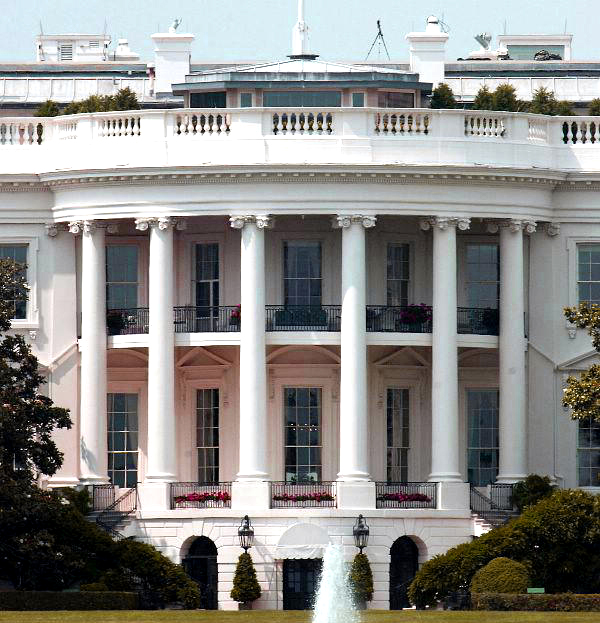
Federal government seeks input on how to improve partnerships with faith-based organizations
by Stanley Carlson-Thies
The U.S. Department of Health and Human Services (HHS) has published aRequest for Information, asking whether its policies and practices make it difficult for faith-based and other community organizations to receive its financial support and how it might better collaborate with those organizations to make federal programs as effective as possible. Comments can be submitted electronically here or by email to CFBNP@hhs.gov, (full instructions here) and are due no later than November 24, 2017.
A brief history of federal & faith-based partnerships
Systematic efforts to remove barriers inhibiting service partnerships between federal programs and faith-based and non-religious organizations date back to the addition of Charitable Choice provisions to several federal grant programs, including the reformed welfare program, during the Clinton administration in the 1990s (see IRFA article “Happy Birthday Charitable Choice, Twenty Years of Success”). The effort, termed the “faith-based initiative,” was systematically carried forth by the George W. Bush and Barack Obama administrations. President Bush established a new mechanism to identify and remove obstacles and to promote government partnerships with civil society organizations—the White House Office of Faith-Based and Community Initiatives and its counterpart, the Centers for Faith-Based and Community Initiatives in the federal departments that fund social services and whose work is improved by close interaction with organizations on the ground. In 2001, the Bush administration released the report, “Unlevel Playing Field,” that documented barriers to those partnerships. Among other solutions, the Bush administration promulgated “equal treatment” regulations to govern all social service grant programs similarly to the Charitable Choice rules. The Centers also worked with federal officials to develop innovative new programs that utilize the unique strengths of local community groups, including faith-based organizations. President Obama renamed and expanded those efforts—there was now a White House Office and departmental Centers for Faith-Based and Neighborhood Partnerships—and created a new Advisory Council to provide guidance from religious and nonprofit leaders on federal policy and partnerships. He initiated an extensive process to update the equal treatment regulations while harmonizing them so that an organization seeking funding from more than one federal department is not faced with incompatible requirements. Additionally, his White House Office and department Centers stressed nonfinancial partnerships along with equal access to federal funding—for example, coordinating disaster preparedness initiatives between FEMA and church-related and community-based programs.
Partnerships during the Trump Administration
President Trump has not continued the faith-based initiative in the same way as his two most recent predecessors. The White House Office has not been re-opened, although there have been occasionalstories that it might be revived in some form. The dozen department Centers exist as regular components of their respective department’s headquarters, but only about half have new leadership appointed by the new administration. The HHS Request for Information is thus an especially welcome sign of reinvigoration of the faith-based initiative in yet another federal administration, an indication that theHHS Partnership Center intends to pursue the important work of improving the effectiveness of federal social services by ensuring optimal collaboration with civil society organizations—local non-religious and faith-based organizations that are close to needs, often have pioneered innovative solutions, and may be more trusted than services provided by outside agencies. The HHS Request for Information was prompted not only by the faith-based initiative of previous administrations, but also by new guidance issued by the Attorney General and by the Department of Justice on October 6, 2017 (Read: “Federal Law Protections for Religious Liberty). This guidance, issued in response to President Trump’s May 4, 2017,Executive Order 13798, “Promoting Free Speech and Religious Liberty,” directs federal departments to ensure, among other things, that regulations and funding programs do not wrongly exclude religious providers nor require them to suppress their religious character.
Offer your feedback
Now is a critical time to influence and improve federal and faith-based partnerships. If you have any feedback for HHS about whether its policies and practices create barriers for faith- and community-based organizations in receiving financial support, considering adding your comments during this period. Feedback is due no later than November 24, 2017, and can be submitted one of four ways:
- Electronically. You may submit electronic comments through http://www.regulations.gov
- By email. You may submit email comments to the following email address ONLY: CFBNP@hhs.gov.
- By regular mail. You may mail written comments to the following address ONLY: Center for Faith-Based and Neighborhood Partnerships, Office of Intergovernmental and External Affairs, U.S. Department of Health and Human Services, Attention: RFI Regarding Faith-Based Organizations, Hubert H. Humphrey Building, 200 Independence Avenue SW., Washington, DC 20201. Please allow sufficient time for mailed comments to be received before the close of the comment period.
- By express or overnight mail. You may send written comments to the following address ONLY: Center for Faith-Based and Neighborhood Partnerships, Office of Intergovernmental and External Affairs, U.S. Department of Health and Human Services, Attention: RFI Regarding Faith-Based Organizations, Hubert H. Humphrey Building, 200 Independence Avenue SW., Washington, DC 20201.
